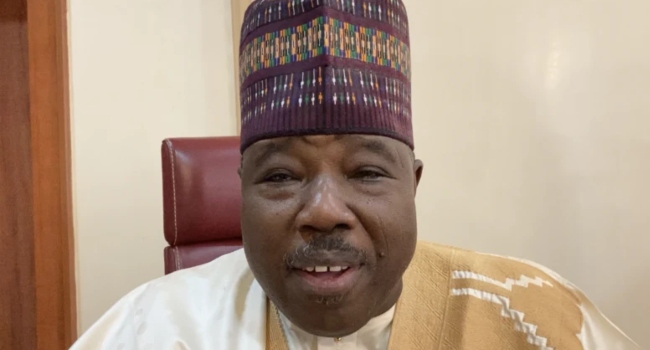A prominent Nigerian political figure has stirred speculation about potential shifts in the country’s opposition landscape ahead of the 2027 general elections. Former Borno State Governor Ali Modu Sheriff claimed during a television interview that Peter Obi, the 2023 presidential candidate of the Labour Party, could soon rejoin the opposition Peoples Democratic Party (PDP) to pursue another presidential bid.
Sheriff made the remarks on Channels Television’s Politics Today program, citing undisclosed sources. “Any moment from now, Obi would go back to the PDP and run as a presidential candidate under the PDP,” he said, adding that the move could reshape competition for the party’s nomination. His comments come amid growing efforts by opposition leaders to unite against Nigeria’s ruling All Progressives Congress (APC), which has held power since 2015.
Obi, a former governor of Anambra State, recently allied with other opposition figures to form a coalition under the African Democratic Congress (ADC), aiming to consolidate support ahead of the 2027 polls. While he has expressed interest in contesting through this alliance, political analysts note that Nigeria’s first-past-the-post electoral system often incentivizes candidates to align with larger, established parties. The PDP, which governed Nigeria for 16 years before the APC’s rise, remains one of the country’s most influential political forces despite internal divisions.
Sheriff’s claims also spotlight potential tensions within the opposition. He suggested that former Vice President Atiku Abubakar, the PDP’s presidential candidate in 2019 and 2023, would remain a contender for the party’s ticket. “For [Atiku], it’s president or nothing,” Sheriff said, contrasting this with Obi’s perceived flexibility. The remarks imply a crowded field, with former transportation minister Rotimi Amaechi—another APC defector—also rumored to be considering a PDP bid.
The former governor questioned the regional appeal of potential rivals, asking, “Which states do they control?”—a nod to Nigeria’s politically fragmented geography, where candidates often rely on strongholds in specific regions. Obi’s 2023 campaign gained unexpected traction among youth and urban voters, particularly in southern Nigeria, though he finished third nationally. A PDP alliance could theoretically broaden his reach in northern states, where the party retains significant influence.
Neither Obi nor PDP officials have publicly confirmed discussions about his potential return. The Labour Party candidate left the PDP in 2022 after losing its presidential primary to Atiku, later mounting a historic third-party campaign that upended Nigeria’s traditional two-party dynamics. His possible pivot back underscores the fluidity of political loyalties in a system where party structures often hinge on personal ambitions and tactical calculations.
As Nigeria’s next election cycle approaches, opposition realignments are expected to intensify. The APC, led by President Bola Tinubu, faces mounting economic challenges, including inflation and currency instability, which could galvanize rival factions. However, analysts caution that internal divisions among opposition groups—evident in Sheriff’s televised remarks—may weaken their ability to present a unified front against the ruling party.
